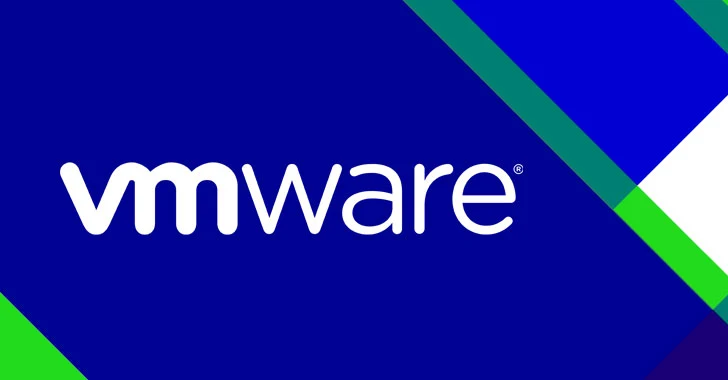VMware is a leading provider of cloud computing and virtualization software and services. Its solutions are designed to simplify IT infrastructure and enable organizations to deliver IT resources more efficiently, securely, and cost-effectively. VMware’s software and services are used by organizations of all sizes across various industries, from small businesses to large enterprises and government agencies.
Virtualization: The Core Function of VMware
At the heart of VMware’s offerings is virtualization technology, which allows users to create and run multiple virtual machines (VMs) on a single physical host system. These VMs share the host’s hardware resources, such as CPU, memory, and storage, enabling organizations to consolidate their IT infrastructure and optimize resource utilization.
By implementing virtualization with VMware, organizations can:
- Maximize Hardware Utilization: Traditional physical servers often operate at low utilization rates, resulting in wasted resources. Virtualization allows multiple VMs to run on a single physical host, maximizing hardware utilization and reducing the need for additional physical servers.
- Achieve Greater Flexibility: Virtual machines can be easily created, modified, or moved between physical hosts, providing greater flexibility in resource allocation and management.
- Enhance Business Continuity: VMware’s virtualization solutions offer features like live migration, high availability, and fault tolerance, ensuring minimal downtime and improved business continuity.
- Simplify IT Management: With VMware’s centralized management tools, administrators can manage and monitor multiple VMs from a single console, streamlining IT operations and reducing administrative overhead.
VMware’s Virtualization Product Portfolio
VMware offers a comprehensive portfolio of virtualization products to cater to the diverse needs of organizations. Some of their key virtualization offerings include:
- VMware vSphere: The flagship virtualization platform, vSphere, provides a robust and scalable infrastructure for building and managing virtual environments.
- VMware Workstation: A desktop virtualization solution that allows users to run multiple operating systems simultaneously on a single physical machine.
- VMware Fusion: Designed for Mac users, Fusion enables the creation and management of virtual machines on macOS.
- VMware ESXi: A purpose-built bare-metal hypervisor that provides a robust and secure foundation for virtualized environments.
Beyond Virtualization: VMware’s Comprehensive Solution Offerings
While virtualization is the core function of VMware, the company has expanded its offerings to address the evolving needs of modern IT environments. Here are some of VMware’s other key solutions:
- Cloud Computing: VMware offers a suite of cloud computing solutions, including VMware Cloud Foundation, which enables organizations to build and operate hybrid and multi-cloud environments seamlessly.
- Network Virtualization: VMware’s NSX platform provides network virtualization capabilities, enabling organizations to create and manage software-defined networks across data centers and cloud environments.
- Storage and Availability: VMware vSAN and vSphere High Availability (HA) solutions ensure reliable and efficient storage management and high availability for virtual environments.
- Security and Compliance: VMware’s security solutions, such as VMware Carbon Black and VMware TrustPoint, help organizations secure their virtualized and cloud environments while maintaining compliance with industry regulations.
- End-User Computing: VMware Horizon and VMware Workspace ONE provide desktop and application virtualization, enabling secure access to corporate resources from any device, anywhere.
Benefits of Using VMware
Adopting VMware’s solutions can bring numerous benefits to organizations, including:
- Increased Operational Efficiency: By consolidating physical servers and streamlining IT management, organizations can reduce operational costs and improve overall efficiency.
- Enhanced Scalability and Agility: VMware’s solutions enable organizations to quickly scale resources up or down based on changing business demands, providing greater agility and responsiveness.
- Improved Business Continuity: Features like live migration, high availability, and fault tolerance ensure minimal downtime and better business continuity.
- Simplified IT Management: VMware’s centralized management tools and automated processes reduce administrative overhead and improve IT productivity.
- Secure and Compliant Environments: VMware’s security solutions help organizations maintain secure and compliant virtual and cloud environments, mitigating risks and protecting sensitive data.
- Reduced Carbon Footprint: By consolidating physical servers and optimizing resource utilization, VMware’s solutions can help organizations reduce their energy consumption and carbon footprint.
Key Takeaways
- VMware is a leading provider of virtualization and cloud computing software and services, enabling organizations to simplify and optimize their IT infrastructure.
- Virtualization is the core function of VMware, allowing users to create and run multiple virtual machines on a single physical host.
- VMware offers a comprehensive portfolio of virtualization products, including vSphere, Workstation, Fusion, and ESXi.
- Beyond virtualization, VMware provides solutions for cloud computing, network virtualization, storage and availability, security and compliance, and end-user computing.
- Adopting VMware’s solutions can bring numerous benefits, such as increased operational efficiency, enhanced scalability and agility, improved business continuity, simplified IT management, secure and compliant environments, and reduced carbon footprint.
Conclusion
VMware’s function is to revolutionize the way organizations manage and utilize their IT infrastructure. Through its virtualization and cloud computing solutions, VMware enables organizations to achieve greater flexibility, efficiency, and cost savings while maintaining secure and compliant environments. As technology continues to evolve, VMware remains at the forefront, providing innovative solutions to meet the ever-changing demands of modern IT landscapes.
FAQs
- What is virtualization, and how does it relate to VMware?
Virtualization is the process of creating virtual versions of computer resources, such as operating systems, servers, storage, and networks. VMware is a leading provider of virtualization software and services, enabling organizations to create and manage virtual environments on a single physical host. - Can VMware be used for server virtualization?
Yes, VMware offers server virtualization solutions like VMware vSphere and VMware ESXi, which allow organizations to consolidate multiple virtual servers onto a single physical host, optimizing hardware utilization and reducing operational costs. - How does VMware’s virtualization technology differ from other virtualization solutions?
VMware was one of the pioneers in virtualization technology and has developed robust and scalable virtualization platforms. Its solutions offer advanced features like live migration, high availability, and fault tolerance, ensuring seamless operations and business continuity. - Can VMware solutions be used in cloud computing environments?
Yes, VMware provides a suite of cloud computing solutions, such as VMware Cloud Foundation, that enable organizations to build and operate hybrid and multi-cloud environments seamlessly, bridging on-premises and public cloud infrastructures. - Does VMware offer solutions for desktop virtualization?
Yes, VMware offers desktop virtualization solutions like VMware Horizon and VMware Workspace ONE, which allow users to access virtual desktops and applications from any device, anywhere, while ensuring secure access and centralized management. - How does VMware ensure secure and compliant virtual environments?
VMware offers security solutions like VMware Carbon Black and VMware TrustPoint, which help organizations secure their virtualized and cloud environments while maintaining compliance with industry regulations and standards. - Can VMware solutions be used for network virtualization?
Yes, VMware’s NSX platform provides network virtualization capabilities, enabling organizations to create and manage software-defined networks across data centers and cloud environments, simplifying network management and enhancing security. - How does VMware help organizations achieve business continuity?
VMware’s virtualization solutions offer features like live migration, high availability, and fault tolerance, ensuring minimal downtime and improved business continuity. In case of hardware failures or planned maintenance, virtual machines can be seamlessly migrated to other hosts without disrupting operations. - Can VMware solutions be used to consolidate physical servers?
Yes, one of the primary benefits of VMware’s virtualization technology is server consolidation. By running multiple virtual machines on a single physical host, organizations can consolidate their physical server infrastructure, reducing hardware costs and optimizing resource utilization. - How does VMware simplify IT management?
VMware provides centralized management tools and automation capabilities that streamline IT operations and reduce administrative overhead. Administrators can manage and monitor multiple virtual machines from a single console, simplifying tasks like provisioning, patching, and resource allocation. - Can VMware solutions be used in combination with other virtualization technologies?
Yes, VMware’s solutions are designed to integrate with other virtualization technologies and platforms, enabling organizations to build heterogeneous virtual environments and leverage the best-suited solutions for their specific needs. - Does VMware offer solutions for storage management in virtual environments?
Yes, VMware provides storage solutions like VMware vSAN, which simplifies storage management in virtual environments by offering software-defined storage capabilities and advanced features like deduplication, compression, and erasure coding. - How does VMware support virtual machine mobility?
VMware’s vMotion technology enables live migration of virtual machines between physical hosts without any downtime, allowing for easy workload balancing, maintenance, and resource optimization. - Can VMware solutions help organizations reduce their carbon footprint?
Yes, by consolidating physical servers and optimizing resource utilization, VMware’s virtualization solutions can help organizations reduce their energy consumption and carbon footprint, contributing to environmental sustainability. - Does VMware offer solutions for end-user computing?
Yes, VMware provides end-user computing solutions like VMware Horizon and VMware Workspace ONE, which enable secure access to virtual desktops, applications, and corporate resources from any device, anywhere. - How does VMware ensure high availability in virtual environments?
VMware’s High Availability (HA) feature automatically restarts virtual machines on other available hosts in case of hardware failures, ensuring minimal downtime and uninterrupted service delivery. - Can VMware solutions be used in hybrid and multi-cloud environments?
Yes, VMware offers solutions like VMware Cloud Foundation that enable organizations to build and operate hybrid and multi-cloud environments seamlessly, bridging on-premises and public cloud infrastructures for greater flexibility and scalability. - How does VMware support application virtualization?
VMware’s application virtualization solutions, like VMware ThinApp, enable organizations to package and deploy applications independently of the underlying operating system, simplifying application delivery and management. - Does VMware offer solutions for disaster recovery and business continuity?
Yes, VMware provides disaster recovery and business continuity solutions like VMware Site Recovery Manager, which enable organizations to replicate and recover virtual environments across different sites, ensuring data protection and minimizing downtime in case of disasters or outages. - How does VMware support container virtualization?
VMware offers solutions like VMware Tanzu, which enable organizations to build, run, and manage containerized applications consistently across on-premises and cloud environments, leveraging the benefits of container virtualization while maintaining consistency with traditional virtualization platforms.

